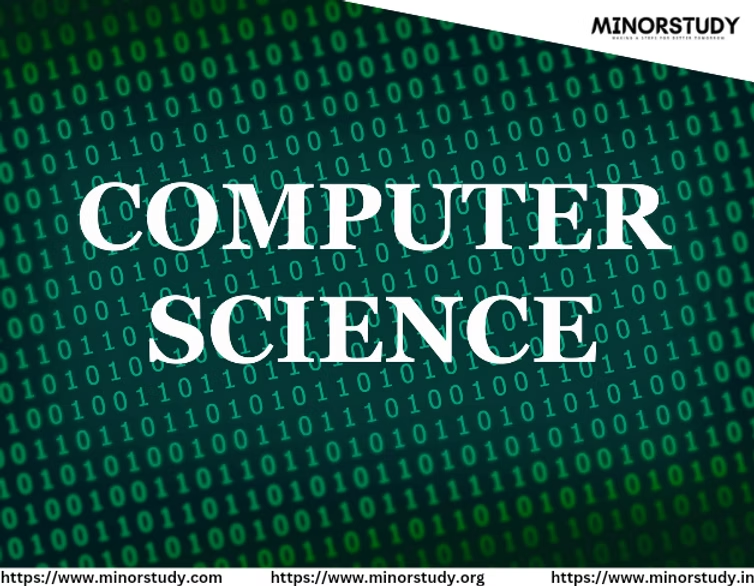Computer Science: An Overview
Computer Science (CS) is the study of computers, computational systems, and the principles of algorithmic processes. It encompasses the theory, design, development, and application of software and hardware to solve problems and improve efficiency. Computer science is foundational to innovations in technology, artificial intelligence, data science, and numerous other fields.
- Key Features of Computer Science
- Key Areas in Computer Science
- Core Subjects in Computer Science
- Skills Required for Computer Science Professionals
- Applications of Computer Science
- Career Opportunities in Computer Science
- Top Universities for Computer Science
- Salary Expectations
- Technological Trends in Computer Science
- FAQs About Computer Science
- Conclusion
Key Features of Computer Science
Aspect | Details |
Core Focus | Algorithms, data structures, programming, and computer systems. |
Applications | Software development, artificial intelligence, cybersecurity, data science, and robotics. |
Interdisciplinary Nature | Combines mathematics, engineering, and logic. |
Skills Required | Analytical thinking, problem-solving, programming expertise, and attention to detail. |
Key Areas in Computer Science
Field | Description |
Software Engineering | Designing and building software applications and systems. |
Artificial Intelligence (AI) | Creating intelligent systems that mimic human behavior and decision-making. |
Data Science | Analyzing and interpreting complex data to extract insights. |
Cybersecurity | Protecting systems and networks from digital attacks. |
Web Development | Designing and coding websites and web applications. |
Machine Learning (ML) | Developing systems that can learn and improve automatically. |
Robotics | Designing and programming robots to perform tasks. |
Computer Graphics | Creating visual content through computational methods. |
Core Subjects in Computer Science
Programming Languages: Python, Java, C++, JavaScript, etc.
Data Structures and Algorithms: Foundations for solving computational problems efficiently.
Operating Systems: Concepts like process management, memory management, and file systems.
Computer Networks: Communication protocols and internet technologies.
Database Management Systems (DBMS): Storing, retrieving, and managing data.
Software Engineering: Principles of designing, developing, and maintaining software.
Artificial Intelligence and Machine Learning: Building systems capable of intelligent behavior.
Cybersecurity: Techniques to safeguard information and systems.
Skills Required for Computer Science Professionals
Programming Skills: Proficiency in coding and understanding programming paradigms.
Problem-Solving Abilities: Applying logical thinking to develop solutions.
Mathematics: Strong grasp of discrete mathematics, calculus, and linear algebra.
Analytical Thinking: Ability to analyze systems, data, and errors.
Communication: Explaining technical concepts clearly to both technical and non-technical audiences.
Applications of Computer Science
Industry | Applications |
Technology | Software development, cloud computing, and AI tools. |
Healthcare | Medical imaging, telemedicine, and health informatics. |
Finance | Algorithmic trading, fraud detection, and financial modeling. |
Entertainment | Game development, virtual reality, and animation. |
Education | E-learning platforms, virtual classrooms, and educational software. |
Transportation | Autonomous vehicles, traffic management, and navigation systems. |
Career Opportunities in Computer Science
Job Role | Key Responsibilities |
Software Developer | Develop and maintain software applications and systems. |
Data Scientist | Analyze data to provide actionable insights. |
AI/ML Engineer | Create AI models and machine learning algorithms. |
Web Developer | Design and implement websites and web applications. |
Cybersecurity Analyst | Protect systems and data from cyber threats. |
System Architect | Design IT systems and infrastructure for organizations. |
Top Universities for Computer Science
University | Country |
Massachusetts Institute of Technology (MIT) | USA |
Stanford University | USA |
University of Cambridge | UK |
ETH Zurich | Switzerland |
National University of Singapore (NUS) | Singapore |
Salary Expectations
Country | Average Annual Salary (USD) |
United States | $80,000 – $150,000 |
Canada | $70,000 – $120,000 |
Germany | $60,000 – $100,000 |
India | ₹5,00,000 – ₹25,00,000 |
Australia | $70,000 – $130,000 |
Technological Trends in Computer Science
Artificial Intelligence and Machine Learning: AI systems for automation and decision-making.
Blockchain: Decentralized technology for secure transactions and data management.
Quantum Computing: Solving complex problems faster than classical computers.
Cloud Computing: Scalable and efficient IT infrastructure solutions.
Augmented Reality (AR) and Virtual Reality (VR): Immersive experiences for gaming and education.
FAQs About Computer Science
Is computer science difficult to study?Computer science can be challenging, especially for those new to programming, but with practice, it becomes manageable.
Which programming language is best for beginners?Python is widely recommended due to its simplicity and versatility.
What industries hire computer science graduates?Almost all industries, including technology, healthcare, finance, education, and entertainment, rely on computer science professionals.
Do I need math for computer science?Yes, a strong foundation in mathematics is essential, especially for algorithms, machine learning, and data science.
Conclusion
Computer Science is a versatile and rapidly evolving field with applications in nearly every sector. With its blend of theoretical knowledge and practical skills, it offers countless career opportunities and the potential to contribute to technological advancements that shape the future. Whether you’re interested in AI, software development, or cybersecurity, computer science provides a pathway to innovate and make an impact globally.








